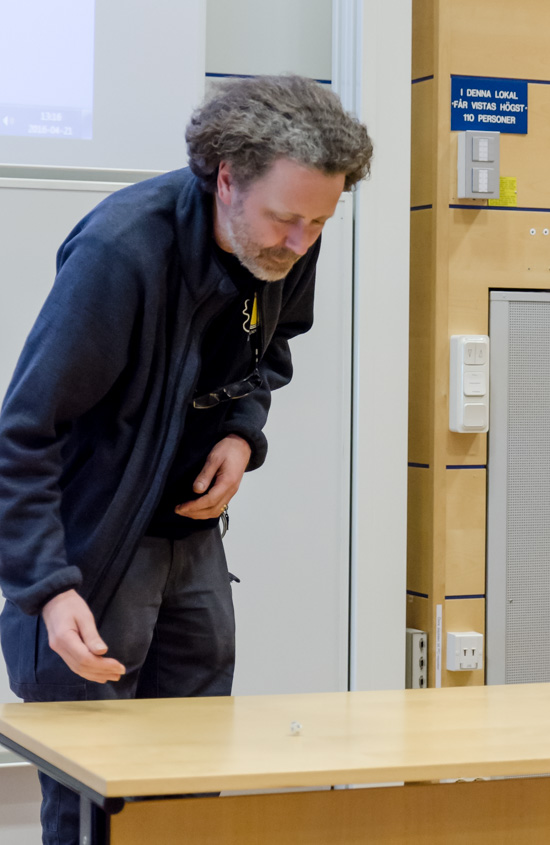
På dagens Tandem Talk berättade Lars Råberg och Honor Prentice om sina studiesystem och hur (mer …)
Biologiska institutionen | Lunds universitet

På dagens Tandem Talk berättade Lars Råberg och Honor Prentice om sina studiesystem och hur (mer …)
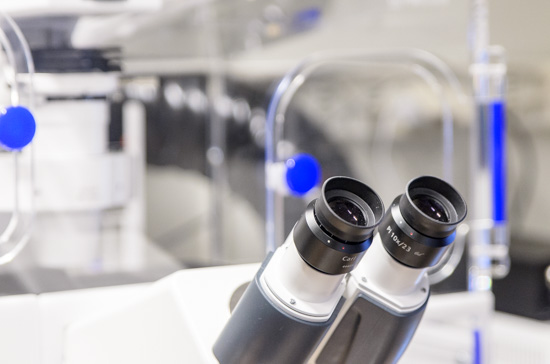
Today Klas Flärdh and Fanny Passot arranged a small inauguration for their new microscope. A lot of people were interested and came to have a look at (mer …)
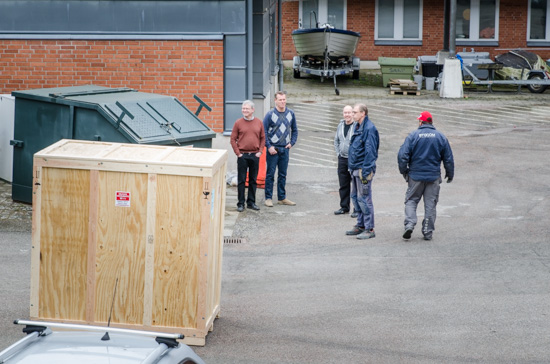
Efter en något vådlig färd till Plan 2 är nu Biologiska institutionens nya tillskott, en fotoelektronspektrometer, på plats. Instrumentet som mäter kemiska (mer …)
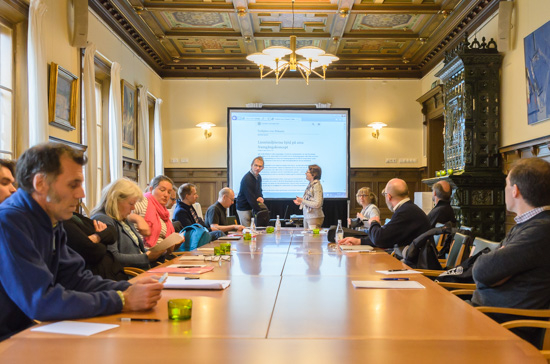
Igår hade institutionsstyrelsen ett heldagsmöte på Biskopshuset. Med på mötet var både ordinarie och suppleanter. Mötet var ett ypperligt tillfälle för den nya styrelsen att (mer …)
An interesting new study has just come out in Science, about how a short conversation can go a long way towards overcoming transgender prejudices. Read the popular summary article in Science.
Interestingly, this study confirms findings from a previous study by another group that was later retracted! This study is also published in Science.
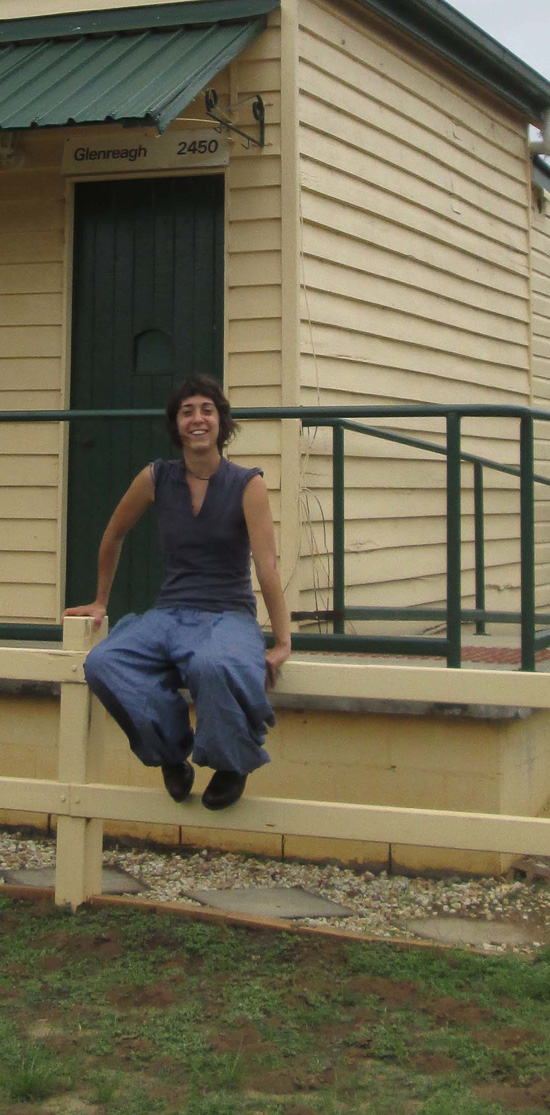
Hej everybody! I just joined the Animal Physiology group to start working as a postdoc with David O’Carroll! I will work on visual selective attention in flies and dragonflies performing both ”in vivo” electrophysiology and anatomical reconstructions!
I did my master in Neurobiology in Pisa, Italy, and obtained my PhD at the University of Trento (Italy) where I studied olfactory asymmetries in bees. In 2014 I moved to Adelaide, Australia, and started working with Steve Wiederman and David O’Carroll investigating the visual acuity of single photoreceptors in dragonflies, dipteran and bee species.
I am really looking forward to starting this new Swedish adventure!
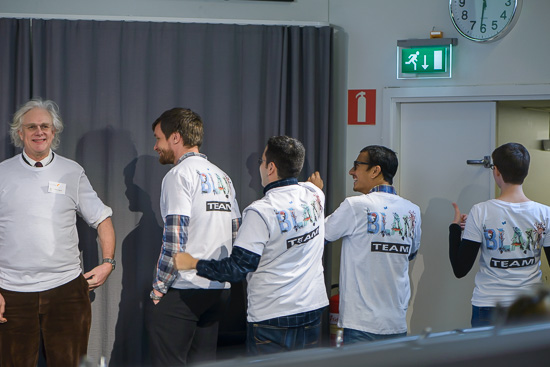
Thursday morning I had a feeling that something was wrong. The sky was cloudy and (mer …)
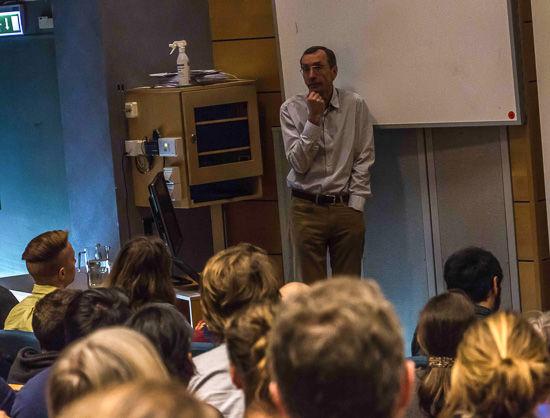
Svante Pääbo filled the room with curious listeners when he visited (mer …)
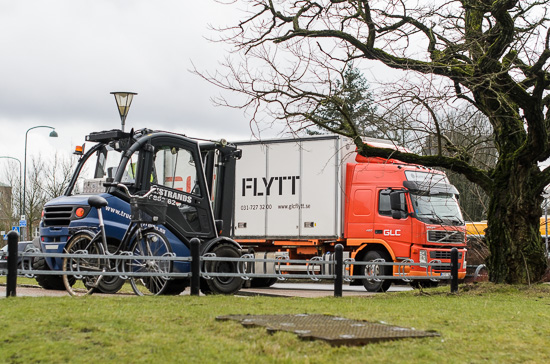
Idag kom institutionens nya transmissionselektronmikroskop (TEM). Det mer än 1 ton tunga mikroskopet är byggt i Japan och har skeppats med (mer …)
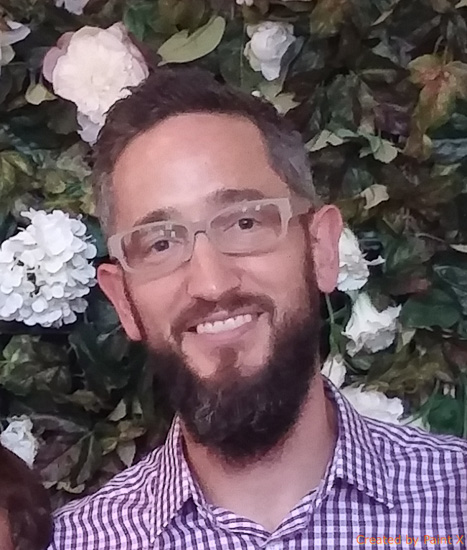
I am interested in the molecular basis of insect olfaction, and in particular the structure of the various proteins that are involved in insect olfaction. I work on over-expressing and purifying these proteins in heterologous cell systems, and then use various biochemical tools to investigate their structure and both protein-protein interactions and protein-ligand interactions.
I received my PhD in 2013 from the University of Auckland in New Zealand with Prof. Richard Newcomb. For my thesis I described a technique to purify the membrane-bound insect odorant receptors and investigated their oligomeric structure as well as the interactions between receptors.
I have joined the Pheromone Group at Lund University with Christer Löfstedt to continue my work investigating the structural nature of the proteins involved in insect olfaction.
Outside of work I spend most of my free time with my wife and three children, but I also enjoy playing the guitar, football and travelling when possible.
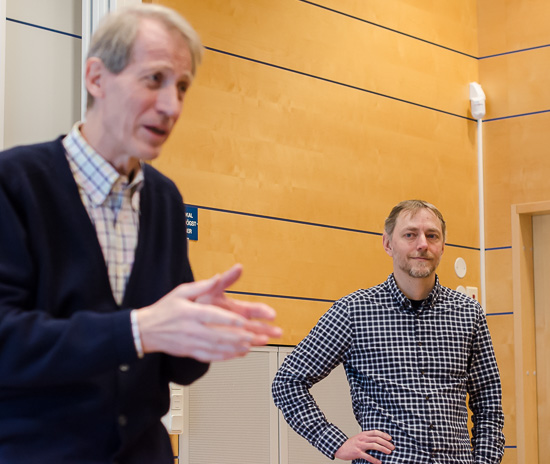
Terminens första tandem talk stod Thomas Alerstam och Niklas Wahlberg för. Dagens tema var ”Butterflies and birds on the wing”.
Först ut var Thomas. Han berättade om (mer …)
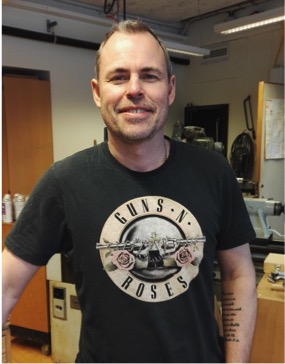 Jag heter Anders och jobbar som servicetekniker i verkstaden i Biologihus A. Är gymnasieutbildad El- och teletekniker och har större delen av mitt yrkesliv jobbat inom verkstads- och monteringsindustrin. Har även jobbat som hjälpmedelstekniker och som handledare inom LSS. På fritiden är jag verksam som fotbollstränare, pysslar med huset, trädgården och familjens djur. Tränar även på gym och målar lite tavlor i olja när tid finnes. Bor i Kärrstorp, i den skånska myllan utanför Stehag tillsammans med fru och barn.
Jag heter Anders och jobbar som servicetekniker i verkstaden i Biologihus A. Är gymnasieutbildad El- och teletekniker och har större delen av mitt yrkesliv jobbat inom verkstads- och monteringsindustrin. Har även jobbat som hjälpmedelstekniker och som handledare inom LSS. På fritiden är jag verksam som fotbollstränare, pysslar med huset, trädgården och familjens djur. Tränar även på gym och målar lite tavlor i olja när tid finnes. Bor i Kärrstorp, i den skånska myllan utanför Stehag tillsammans med fru och barn.
Kommentarer